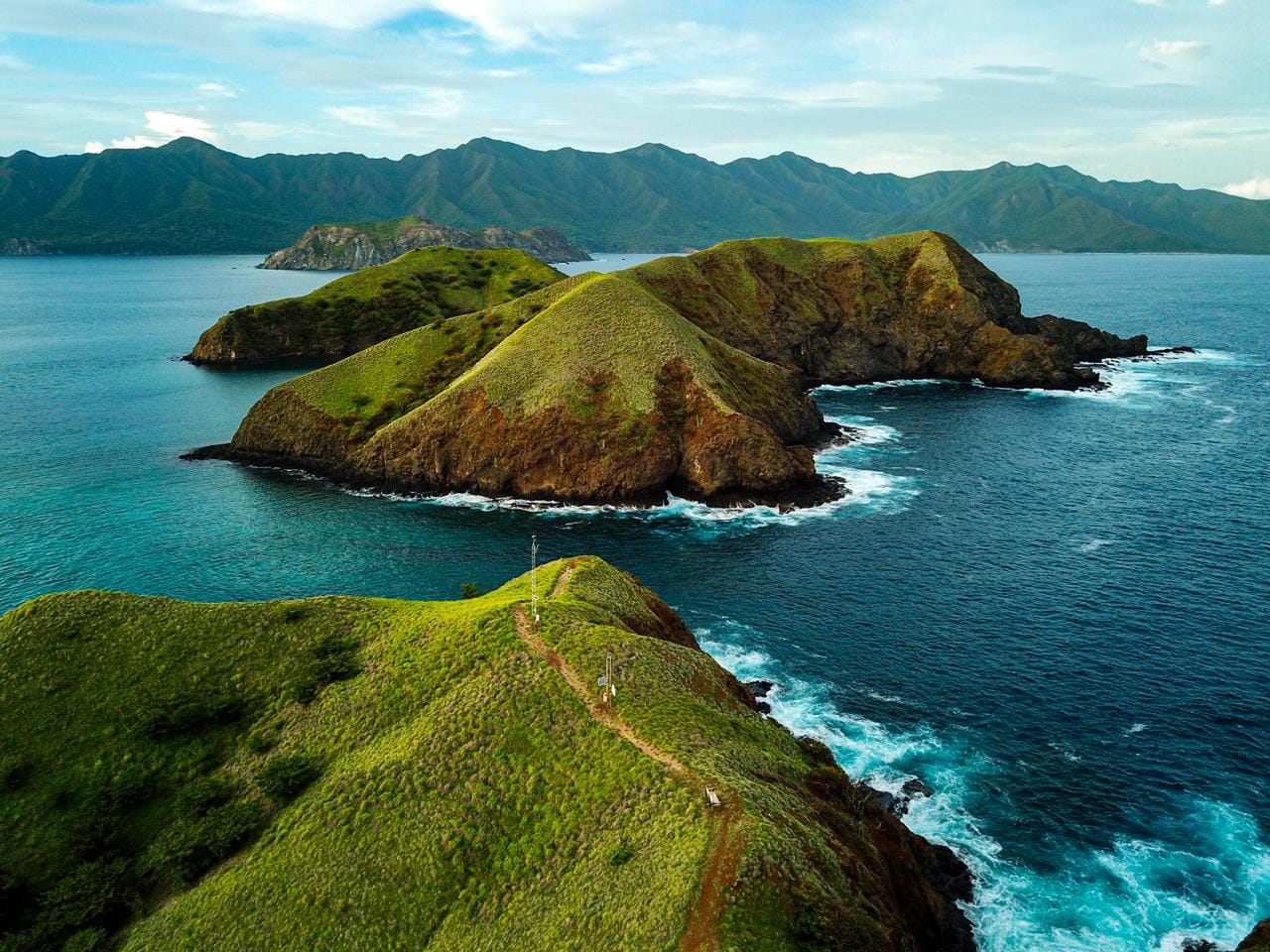
Progress Report: Latin America and Caribbean Community of Practice
Learn More
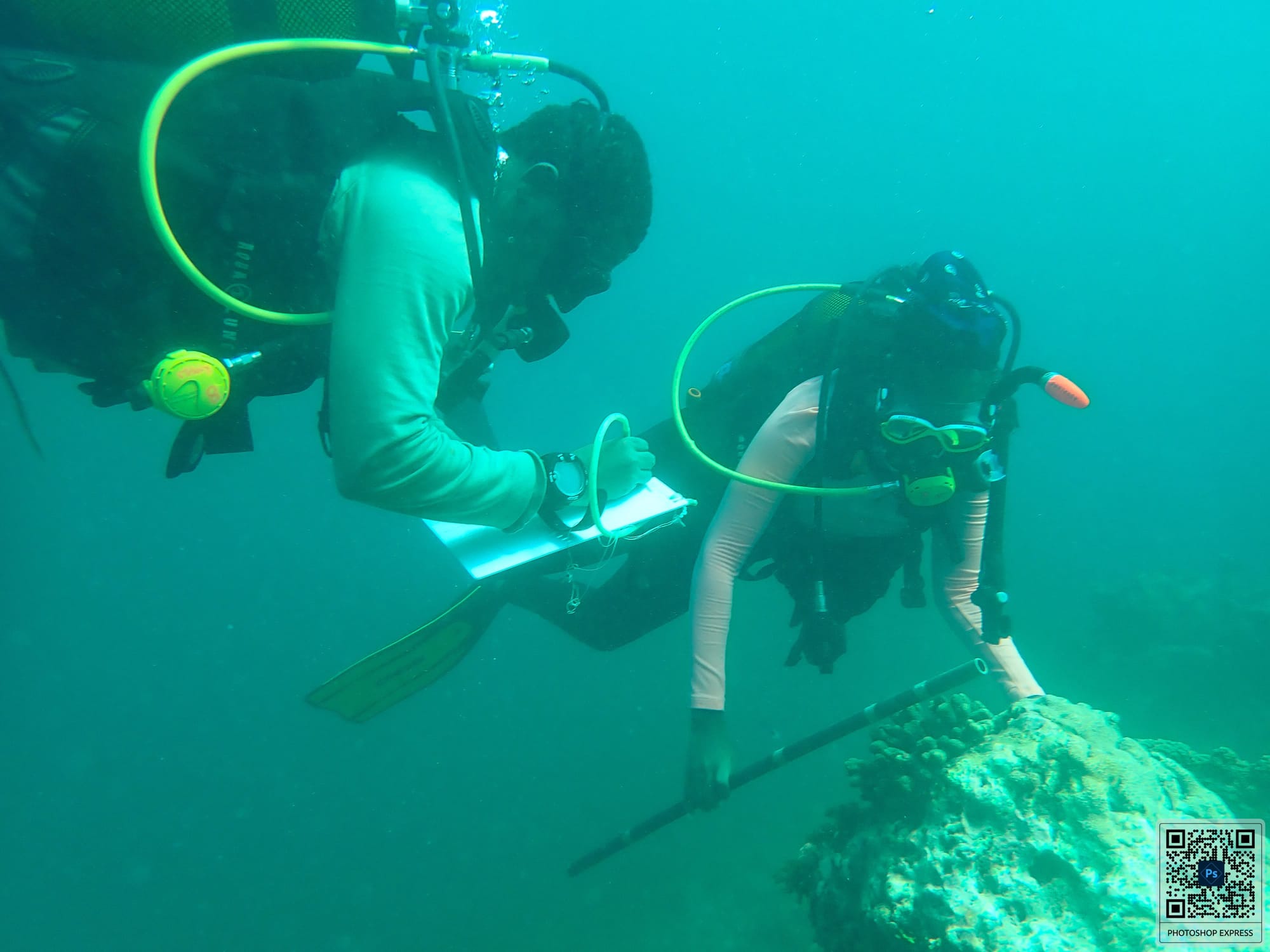
The Ocean Accounts Fellows Program is an interdisciplinary initiative that brings together practitioners from Africa, Asia, the Pacific and Latin America and the Caribbean, with the aim of enhancing sustainable ocean development, ocean governance and coastal resilience through innovative research. With supervision provided by the Global Ocean Accounts Partnership (GOAP) Secretariat, the program encompasses a diverse range of projects. These include critical analyses of legal frameworks for Marine Spatial Planning (MSP), the utility of Earth observation techniques for ocean accounting, socio-ecological resilience monitoring, and the integration of ocean accounting into marine conservation and economic policy development.
Each fellow, whether engaged in government, academia, or on-the-ground research, contributes to a collective goal of fostering sustainable marine resource management, promoting economic growth, and preserving environmental integrity through informed policy and legal frameworks.

Ocean Accounts Fellow - Coral Reef Ecologist and Conservationist
Pwani University and Kenya Marine and Fisheries Research Institute (KMFRI)
Monitoring the Socio-Ecological Resilience of Coastal Communities to Coastal Changes in Kilifi County, Kenya
Dr. Karisa’s project is focused on spatial delineation to understand the extent, current condition, and changes in the condition of coral reefs along the Kilifi County coast. It also aims to delineate the ecosystem services and dependency of coastal communities on these services, with a focus on identifying spatial distribution of vulnerable communities and their adaptation strategies. Another key aspect of the project is to identify coastal land use and land cover changes, emphasizing built-up areas and agricultural zones. The research is geared towards enhancing coastal management strategies through integrated ocean accounting and developing tools for measuring coastal resilience.

Ocean Accounts Fellow - Ocean Governance
Nelson Mandela University (based in Kenya)
A Critical Analysis on Legal Ocean Accounting for the Development and Implementation of Marine Spatial Planning in Kenya
This project aims to explore the integration of legal components within ocean accounting frameworks to assess and enhance the effectiveness of Marine Spatial Planning (MSP) in Kenya. Specifically, the research will examine how incorporating legal frameworks within ocean accounts can address the fragmentation of laws, regulations, and management practices that currently govern Kenya’s territorial waters and Exclusive Economic Zones (EEZ). This analysis seeks to identify gaps, conflicts, and potential for harmonization within existing legal instruments to support coherent and effective MSP development and implementation. By doing so, the project endeavours to contribute to sustainable ocean governance in Kenya, ensuring economic growth, job creation, and environmental preservation are achieved through informed and integrated legal and policy approaches.

Ocean Accounts Fellow
Pwani University and Kenya Marine and Fisheries Research Institute (KMFRI)
Demonstration of the Utility of Earth Observation Techniques in Kenyan Ocean Accounting
This project aims to leverage Earth observation techniques to advance ocean accounting in Kenya. It focuses on a comprehensive assessment of the use and value of ocean resources, with a particular emphasis on mangroves, coral reefs, and seagrass. The project seeks to contribute to effective marine spatial planning in Kenya and enhance the understanding of ocean accounting that can be integrated into the Nationally Determined Contributions (NDCs) framework.

Ocean Accounts Fellow - Master’s candidate
Institut Halieutique et des Sciences Marines, University of Toliara, Madagascar
Coral extent and condition of the Coral Reef systems off the southwest coast of Madagascar
This research aims to enhance ecosystem accounting methodologies by integrating in situ validation techniques to improve the accuracy of ecosystem maps derived from satellite imagery and assess the spatiotemporal dynamics of coral reef conditions. By combining field data collection, drone-based aerial imaging, and in situ ecological monitoring, the project will optimize the reliability of remote sensing models applied to the mapping of benthic and coastal habitats. Furthermore, it will incorporate analyses of community resource use, tracing historical changes in coral cover, reef ecological integrity, and dependence on ecosystem services. The findings will contribute to the development of strategic recommendations for the sustainable management of marine ecosystems, ensuring the integration of scientific data and local knowledge into conservation policies.

Ocean Accounts Fellow - Economist
Institut Halieutique et des Sciences Marines, University of Toliara, Madagascar
Developing National Ocean Economic Satellite Accounts for Madagascar
This project focuses on the development of Ocean Economy Satellite Accounts (OESA) for Madagascar, addressing the critical need to integrate ocean-based economic activities into national economic frameworks. The project will assess the value of ecosystem services, formulate ocean economy indicators, and provide data-driven insights for policy development. These efforts will support evidence-based ocean governance, strategic investment planning, and the integration of marine resource management into Madagascar’s national economic policies and sustainable development strategies.

Ocean Accounts Fellow - Remote Sensing and Coral Reef Mapping Specialist
Institut Halieutique et des Sciences Marines, University of Toliara, Madagascar
Remote Sensing and Earth Observation for Mapping Coral Reef Systems in Southwest MadagascarAccounting
This project aims to enhance the mapping and monitoring of coral reef ecosystems along the southwest coast of Madagascar using high-resolution satellite imagery, drone-based surveys, and advanced classification techniques. As part of the OASIS-M initiative, the research will contribute to the System of Environmental Economic Accounting – Ecosystem Accounting (SEEA-EA) framework by generating accurate ecosystem extent maps. The study will integrate Sentinel-2 remote sensing data, Object-Based Image Analysis (OBIA), and in situ ground-truthing to refine coastal and benthic habitat classification. These ecosystem accounts will support sustainable ocean planning, marine spatial management, and national blue economy strategies. By bridging scientific data with governance needs, the project aligns with ocean accounting principles, ensuring the integration of ecosystem information into Madagascar’s National Accounts System for improved marine conservation and policy decision-making.

Ocean Accounts Fellow
University of Cape Coast, Ghana
Advancing National Ocean Economic Satellite Accounts in Ghana
There is an identified increasing need for the development of ocean economy satellite accounts (OESA) in African coastal nations including Ghana. Resultant outputs from an OESA process provide the economic information required by governments and government agencies to both measure and grow the ocean economy and for inclusion of economic information into informed and evidence ocean governance processes, including in strategic investment planning and the development of ocean macroeconomic indicators. However, there are capacity gaps within government agencies in many of these countries which is a limitation to the development and uptake of these statellite accounts as well as their integration into decision-making processes. The project is a partnership between ACECoR and the Ghana Statistical Services to enhance ocean accounting capacity within government agencies by advancing national economic oceans accounts. This includes policy diagnostic, mapping of relevant sectors, scoping of national oceans accounts to support government priorities, hosting workshops with government stakeholders to share knowledge and facilitate government engagement. Akua has worked on climate change and gender policies for over 7 years. She brings on board her expertise in coordinating engagement with government and other stakeholder institutions, managing mangrove restoration and land evaluation.

Ocean Accounts Fellow - Master’s Candidate
Centre for Coastal Management, University of Cape Coast, Ghana
Assessing Mangrove Ecosystem extent and conditions in Keta Ramsar Site, Ghana
This study assesses the extent, health, and future trajectory of mangrove ecosystems within the Keta Ramsar Site, Ghana, using an integrated approach that combines remote sensing, field-based assessments, and predictive modelling. Mangrove extent and canopy cover dynamics from 2015 to 2024 will be analysed using Sentinel-2 and drone imagery, with the Normalized Difference Vegetation Index (NDVI) applied to assess vegetation condition. Land use and land cover (LULC) changes will be mapped using Google Earth Engine (GEE) to understand the drivers of mangrove degradation. Future mangrove distribution (2030–2040) will be projected using Land-Use Change Models (Markov Chain, CA-ANN) and the Sea Level Affecting Marshes Model (SLAMM) to evaluate the potential impacts of sea-level rise. Additionally, biomass estimation will be conducted through allometric equations and field-based measurements to quantify carbon sequestration potential. By bridging critical gaps in scientific research and governance, this study aims to enhance mangrove conservation strategies and support ocean sustainability initiatives.

Ocean Account Fellow - Post-Doctoral
University of Cape Coast, Ghana
Integrating Ecosystem Services and Socioeconomic Dynamics into Ocean Accounts: A Case Study of Mangrove Ecosystems in Keta Ramsar Site, Ghana
This study integrates ecosystem services and socioeconomic dynamics into ocean accounts using the Keta Ramsar Site in Ghana as a case study. This research is grounded in the framework of the System of Environmental-Economic Accounting (SEEA), which links ecological and economic data to inform sustainable resource management. The study employs remote sensing to map mangrove extent, biomass assessments to estimate carbon sequestration (Blue Carbon), and household surveys and participatory mapping to evaluate provisioning, regulating, supporting, and cultural ecosystem services. Additionally, value chain analysis and scenario modeling are used to examine the economic impact of mangrove degradation versus conservation. Findings will inform policy interventions, governance frameworks, and sustainable management strategies, strengthening the role of mangroves in climate resilience and local livelihoods. This research contributes to strengthening ocean accounting frameworks by incorporating both ecological and socioeconomic values, providing a data-driven approach for sustainable coastal ecosystem governance.

Ocean Accounts Fellow - Plastic and Waste Specialist
Global Ocean Accounts Partnership (GOAP) Secretariat (based in Sri Lanka)
Managing data on plastics for data-driven decision making for managing marine pollution
Randika has over 13 years of extensive experience in the environmental field, specializing in plastic waste management, circular economy, recycling, and upcycling. After earning her Ph.D. from the University of Western Australia, focusing on value addition to plastic waste in Sri Lanka, she nad her PhD supervisor secured a prestigious Global Partnerships for Development grant. This enabled her to lead a three-year project fostering community-based waste recycling businesses through university partnerships in Sri Lanka. Her expertise has been further enriched through collaborations with international organizations like Australian Aid, USAID, GIZ, and UNEP, as well as contributing as a primary author to Sri Lanka’s National Waste Management Action Plan. With a strong background in academic lectures, workshops, data analysis, technical report writing, policy analysis, and stakeholder engagement across universities, government, and industries, Dr. Jayasinghe brings a unique combination of research excellence and practical implementation experience in driving sustainable waste management solutions.

Ocean Accounts Fellow - Economist
Global Ocean Accounts Partnership (GOAP) Secretariat (based in Philippines)
Advancing ocean accounts for sustainable blue economies in Southeast asia and the pacific
With over 17 years of teaching experience at the University of the Philippines, she has taught economic analysis, quantitative methods, and public economics, as well as multidisciplinary courses on protected area management and governance. Her research focuses on small island tourism, conservation of endangered species, disaster valuation, reef resilience, and the economic potential of the blue economy. Cheryl has collaborated with international organisations, governments, and research institutions on sustainability-focused initiatives. She has led and co-led projects funded by the United Nations (UN), Asian Development Bank (ADB), Luxembourg Government, Agence Française de Développement, among others. Her work integrates economic insights with environmental and policy applications, contributing to global discussions on sustainable livelihoods, climate resilience, the blue economy, and economic policy for natural resource conservation.

Ocean Accounts Fellow - PhD Candidate
Global Ocean Accounts Partnership (GOAP) Secretariat (based in Indonesia and Australia)
Mainstreaming Ocean Accounting for Enhanced Governance in the areas beyond national jurisdiction of the Indian Ocean
Yoga will research the adoption of Ocean Accounting (OA) as a tool for improving ocean governance in the Marine Areas Beyond National Jurisdiction (ABNJ) of the Indian Ocean. By investigating the application possibilities and challenges of OA, identifying conducive institutional and legal frameworks, developing a systematic OA implementation strategy, and providing actionable recommendations, the study seeks to contribute to the effective management and conservation of marine resources in the ABNJ, ensuring their sustainable use for the benefit of global and regional communities. Before his studies, Yoga was a Senior Marine Ecosystem Services Analyst at the Indonesian Ministry of Marine Affairs and Fisheries. With more than 10 years of service at the Ministry, Yoga has been involved in formulating science-based government policies and Indonesian country reports in multilateral conventions related to marine conservation.
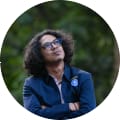
Ocean Accounts Fellow - PhD Candidate
Directorate of Coastal and Small Islands, Indonesian Ministry of Marine Affairs and Fisheries
Ocean Accounts and Assets Valuation of Coastal and Marine Ecosystem
Marsel will conduct a comprehensive assessment of coastal and marine ecosystem assets and dynamics in at least two pilot sites under the Ocean Accounts framework, such as marine protected area (MPA) and marine spatial planning. This work will involve identifying key ecosystem types, quantifying their extent, evaluating their condition, and estimating the benefits they provide to both the economy and the environment. The assessment aligns with Indonesia’s ongoing efforts to develop and implement Ocean Accounts as a tool for integrating ocean-related information into decision-making. By generating spatial and economic data on critical ecosystem services, this research is expected to provide a strong evidence base for developing policies, regulations, and management strategies in the marine and fisheries sector, particularly those aimed at sustaining ecosystem health, supporting livelihoods, and guiding long-term ocean governance.

Ocean Accounts Fellow - PhD Candidate
Directorate General of Marine Spatial Planning, Indonesian Ministry of Marine Affairs and Fisheries
Coupling Between Regional Plan and Ocean Accounting
Holiludin will investigate ways to integrate Ocean Accounts with marine spatial planning to strengthen coastal and marine development strategies in Indonesia. This research will focus on evaluating how ocean economic and ecological data can be systematically aligned with spatial planning frameworks to ensure that development decisions reflect both environmental sustainability and economic priorities. By identifying gaps, overlaps, and opportunities within current planning practices, the study aims to promote more coherent policies and effective resource management. With over 15 years of experience as a marine spatial planning specialist at the Indonesian Ministry of Marine Affairs and Fisheries, combined with academic backgrounds in marine science and regional planning, Holiludin brings a unique interdisciplinary perspective that bridges technical expertise, policy understanding, and practical implementation. His work is expected to inform future planning guidelines, ensuring that marine development supports both ecological resilience and long-term socio-economic benefits.

Ocean Accounts Fellow - PhD Candidate
Marine and Coastal Resource Management Technical Implementing Unit (Denpasar), Indonesian Ministry of Marine Affairs and Fisheries
Ocean Governance of Marine Protected Area
Rizka Dzulfikar’s study evaluates the effectiveness of marine protected area (MPA) governance by applying Ocean Account data and analytical tools to assess ecological, social, and economic performance. This research aims to provide measurable indicators for policy evaluation, ensuring that MPA planning and development are based on robust evidence and can deliver tangible conservation and livelihood benefits. By integrating ecosystem asset data with governance assessments, the study will help identify which management approaches produce the most sustainable outcomes and where improvements are needed. With more than a decade of experience at the Coastal and Marine Resources Management Center (BPSPL) Denpasar under the Indonesian Ministry of Marine Affairs and Fisheries, Rizka has contributed extensively to strengthening Indonesia’s MPA network, enhancing local capacity, and achieving notable gains in biodiversity protection and resource stewardship. This work is expected to guide future decisions on expanding and refining MPAs, aligning conservation goals with national ocean governance priorities.

Ocean Accounts Fellow - PhD Candidate
Marine and Coastal Resource Management Technical Implementing Unit (Denpasar), Ministry of Marine Affairs and Fisheries
Ocean Accounts for Marine Resources Policy
Sri’s study focuses on strengthening the application of ocean accounting to guide decision-making in marine protected area (MPA) management. By examining marine resource policies and comparing conditions before and after their implementation through the OA framework, the research seeks to identify which measures are most effective and where policy adjustments are needed. The study will generate evidence-based recommendations to improve management strategies, ensuring that MPAs deliver both ecological protection and socio-economic benefits. Drawing on more than a decade of experience as a marine services business analyst at the Marine and Coastal Resource Management Unit in Denpasar, with oversight of East Nusa Tenggara under the Indonesian Ministry of Marine Affairs and Fisheries, Sri brings deep knowledge of regional governance challenges and opportunities. Her contributions have advanced MPA effectiveness, improved fish species conservation, and supported sustainable use of marine resources that will be critical in translating OA findings into actionable policy guidance.
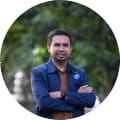
Ocean Accounts Fellow - Master’s Candidate
Directorate of Ecosystem Conservation (Serang), Indonesian Ministry of Marine Affairs and Fisheries
Coupling and Coordination Degree between Climate Mitigation Infrastructure and Local Economic Development on the North Coast of Central Java
Muhammad Ismail Sakaruddin will analyze the interrelationships between climate mitigation infrastructure development and local economic development in the northern coastal area of Central Java, a region facing significant threats from land subsidence and sea-level rise. By employing the Coupling and Coordination Degree Model (CCDM), the research measures how well two complex systems interact: large-scale infrastructure interventions (such as sea walls and mangrove restoration) and the local economy they are meant to protect. The study assesses whether these systems are evolving in harmony or conflict. By integrating primary data from satellite imagery with secondary data from various government agencies, the analysis will identify key factors that inhibit synergy. The findings will provide actionable recommendations for policymakers to guide resilient development strategies that protect coastal communities, foster sustainable economic growth, and enhance local livelihoods. This approach ensures that massive infrastructure investments are strategically aligned with broader socio-economic goals for the region.

Ocean Accounts Fellow - PhD Candidate
Marine and Coastal Resouce Management Technical Implementing Unit, Indonesian Ministry of Marine Affairs and Fisheries
Ocean Accounts for Managing Ecosystem Services in Coastal Lagoons
Supradianto’s study designs an integrated framework for managing coastal lagoon ecosystem services in the face of deep uncertainty, such as climate variability, shifting human pressures, and evolving policy priorities. By applying ocean accounting to quantify both the physical condition and monetary value of key ecosystem services, and combining these data with system dynamics modeling, exploratory modeling, and scenario analysis, the research maps out robust policy pathways that remain effective under multiple future conditions. This approach enables decision-makers to test alternative management strategies, anticipate trade-offs, and build adaptive plans that balance ecological integrity with socio-economic needs. Since 2010, Supradianto has served at the Coastal and Marine Resources Management Office under the Ministry of Marine Affairs and Fisheries, with roles in coastal zoning, marine space licensing, MPA management, and translating scientific findings into governance frameworks. His extensive experience ensures that the study’s outputs are not only technically rigorous but also directly applicable to Indonesia’s marine policy landscape, to support sustainable and resilient coastal management for the long term.

Ocean Accounts Fellow - Master’s Candidate
Directorate of Ecosystem Conservation, Indonesian Ministry of Marine Affairs and Fisheries
Marine and Coastal Ecosystem Assets and Residual Accounts
Rusdatus will conduct an ex-post cost–benefit analysis to evaluate the economic impact of the Gili Matra Marine Protected Area (MPA) on North Lombok Regency, providing a comprehensive assessment of both ecological and financial outcomes. Applying the tier-2 Ocean Accounting method, the research quantifies a wide range of benefits, including resource rent from fisheries and tourism, carbon sequestration services, natural coastal protection, nearby use values, and adjacent ecosystem benefits. These are weighed against detailed costs such as MPA management and operational expenses, staff salaries, waste management efforts, carbon emissions, and the opportunity cost associated with restricting activities in the core zone. By calculating the Net Present Value (NPV) and Benefit–Cost Ratio (BCR), the study will determine whether the MPA delivers positive returns on investment over time. Additionally, the research will provide a refined valuation of seagrass ecosystems by type, highlighting their contribution to both ecological resilience and local economic benefits. The findings are expected to guide policymakers in optimizing MPA management strategies, ensuring that conservation measures are financially sound and socially equitable.
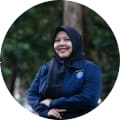
Ocean Accounts Fellow - Master’s Candidate
Directorate of Marine Services, Indonesian Ministry of Marine Affairs and Fisheries
Payment Ecosystem Services generated from Ocean Accounting
Tika will explore how Payment for Ecosystem Services (PES) can be applied as a policy instrument to ensure whale shark ecotourism in Teluk Saleh, West Nusa Tenggara, develops in a way that is both sustainable and socially equitable. The research examines the socio-ecological system, connecting with the ocean accounts for marine biodiversity, tourism activities, and community livelihoods, then constructs a dynamic system model to analyze how these components interact over time. By simulating a range of PES policy scenarios, the study identifies approaches to secure conservation funding, encourage environmentally responsible tourism practices, and distribute economic benefits more fairly among stakeholders. With more than five years of experience at Marine Services under the Ministry of Marine Affairs and Fisheries, Tika brings practical knowledge of marine resource management and stakeholder engagement. Her findings are expected to provide actionable recommendations for coastal planning, ensuring that whale shark conservation supports local development while maintaining healthy marine ecosystems.
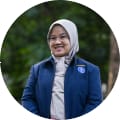
Ocean Accounts Fellow - Master’s Candidate
National Marine Protected Area Agency (BKKPN Kupang), Indonesian Ministry of Marine Affairs and Fisheries
Integration of Ocean Accounts to MPA Management Design and Evaluation
Ade’s study examines how ocean accounts can be embedded into the design and evaluation of Marine Protected Area (MPA) management using governance modeling. Conducted in an MPA in eastern Indonesia under the Ministry of Marine Affairs and Fisheries, the research integrates ecological, social, and economic data to provide a more comprehensive basis for decision-making. By linking ocean accounting indicators with governance performance, the study aims to identify management strategies that strengthen ecosystem protection, enhance transparency, and improve resource allocation. With over five years of experience as an MPA manager in Kupang, Ade brings hands-on expertise in implementing conservation programs, coordinating stakeholders, and achieving measurable outcomes in biodiversity protection. The findings are expected to guide policymakers in adopting evidence-based approaches that make MPAs more adaptive, accountable, and effective over the long term.
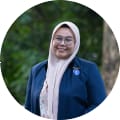
Ocean Accounts Fellow - Master’s Candidate
National Marine Protected Area Agency (LKKPN Pekanbaru), Indonesian Ministry of Marine Affairs and Fisheries
Ocean Accounting and Valuation of Ecosystem Services in Indonesia
Nur’s research evaluates the ocean accounts framework, particularly the economic value of ecosystem services in a national Marine Protected Area (MPA). The valuation is highlighting both provisioning services from coral reefs that sustain traditional fisheries and cultural services derived from marine tourism. By quantifying how these services contribute to the incomes of traditional fishers and local communities, the study provides concrete evidence of the benefits MPAs deliver to people as well as ecosystems. This valuation supports the broader application of ocean accounting in MPA management, helping decision-makers link conservation outcomes to social and economic well-being. With more than six years of experience as an MPA manager in Pekanbaru under the Ministry of Marine Affairs and Fisheries, Nur brings practical expertise in implementing protection measures, engaging local stakeholders, and improving resource governance. The research findings are expected to inform policy strategies that balance biodiversity conservation with livelihood security, ensuring that MPAs generate sustainable benefits for both nature and coastal communities.

Ocean Accounts Fellow - Environmental Scientist and Geospatial Expert
Global Ocean Accounts Partnership (GOAP) Secretariat
Natural Capital Accounting in the Maldives
Ahmed Shan is an experienced environmental scientist and geospatial expert with nearly two decades of experience in environmental research, conservation, and surveying. Currently serving as a Senior Surveyor at the Ministry of Climate Change, Environment, and Energy in the Maldives, Shan has led significant initiatives including the Baa Atoll UNESCO Biosphere Reserve Ten Year Review. His work spans coastal zone monitoring, protected area management, and climate resilience initiatives across multiple atolls in the Maldives.
His project focuses on integrating Natural Capital Accounting in the Maldives, leveraging his extensive experience in environmental assessment and geospatial analysis to support sustainable resource management and conservation policy. By applying spatial science to environmental challenges, Shan aims to drive data-informed decision-making that balances ecological protection with development needs in this vulnerable island nation.

Ocean Accounts Fellow - Conservation and Policy Professional
Maldives
Aligning ocean accounts with national biodiversity, climate and environment initiatives
Lisama Sabry is a Maldivian conservation professional with over a decade of experience advancing marine biodiversity policy and practice. A Senior Conservation Officer with the Ministry of Tourism and Environment, she has contributed to updating the Maldives’ National Biodiversity Strategy and Action Plan and is committed to strengthening sustainable marine resource management nationwide. Lisama’s recent work on ocean accounting has included linking ocean accounts with biodiversity through legal and policy frameworks, ensuring that ecological condition, ecosystem services and economic use are considered together in decisions. This includes aligning the Maldives’ National Roadmap on Ocean Accounts with existing legislation (such as environmental, fisheries and tourism laws) and with international initiatives.
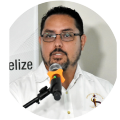
Ocean Accounts Fellow - Senior Statistician
Statistical Institute of Belize
Advancing Ocean Accounting for Sustainable Blue Economy Development in Belize
Jefte serves as the lead fellow for Belize in the compilation of Ocean Accounts. This includes compiling Ocean Economy Satellite Accounts (OESA) to quantify the contribution of ocean-based sectors to Belize’s GDP, and the implementation of the System of Environmental-Economic Accounting (SEEA) to better capture the interactions between the economy and the marine environment. By aligning ocean accounting with Belize’s policy priorities, Jefte is helping to build a robust evidence base for marine spatial planning, climate resilience, and coastal resource management.
His involvement in the Ocean Accounts initiative reflects a broader regional and global effort to strengthen data-driven decision-making for ocean sustainability. He also contributes to capacity-building efforts and regional knowledge exchange to support the uptake of SEEA-based ocean accounting across the Caribbean.
Jefte has over 17 years of experience in official statistics, macroeconomic indicators, and data innovation.
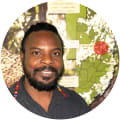
Ocean Accounts Fellow – Marine Biologist
University of Belize - Environmental Research Institute (UB ERI) Belize
Advancing Ocean Accounting for Sustainable Blue Economy Development in Belize
Wilbert contributes to Belize’s national efforts to conserve and sustainably manage marine ecosystems. His role focuses on leading in-situ data collection and validation for coral reef extent and condition, supporting the development of the country’s first ocean accounts. This includes refining field protocols to ensure consistency and data quality, aligned with the SEEA Ecosystem Accounting (SEEA-EA) framework. This work forms part of a national initiative, led by the Ministry of Blue Economy and Marine Conservation, to pilot and institutionalise ocean accounts in Belize.
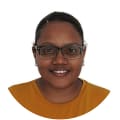
Ocean Accounts Fellow - Data Management and Hosting
Coastal Zone Management Authority and Institute (CZMAI), Belize
Advancing Ocean Accounting for Sustainable Blue Economy Development in Belize
Caisha contributes to Belize’s national efforts to institutionalise ocean accounting through enhanced data management and accessibility. Her role focuses on developing and maintaining systems for storing, organizing, and sharing geospatial and ecosystem data to support the country’s first ocean accounts. In this project, she supports the establishment of metadata standards, validation protocols, and data-sharing mechanisms that ensure consistency, transparency, and interoperability across institutions. This work enables effective collaboration between agencies and ensures that decision-makers have access to high-quality data when assessing the condition of marine ecosystems and their contributions to the economy.

Ocean Accounts Fellow - Legal and Policy Advisor
Papua New Guinea
Ocean accounts for economic value, ecosystem services and community dependencies in Papua New Guinea
Coastal provinces in PNG rely on their coastal ocean space and marine resources for food, income, and cultural well-being. Under current law, these provinces lack clear jurisdictional authority over their 0–3 nautical mile waters, limiting their ability to manage and protect resources. The research documents the social and economic dependence of specific coastal communities in PNG, drawing on government and community data. It then supports that formally delineating provincial coastal waters (as enabled by Section 13 of the Maritime Zones Act 2015) is also urgent for empowering local management, improving sustainability, and ensuring equitable benefit-sharing.

Ocean Accounts Fellow - Marine Spatial Planner and Ocean Management Specialis
Vanuatu
Ocean accounts for coral reef ecosystems and governance in Vanuatu
These pilot accounts will demonstrate how ongoing implementation can support evidence-based policymaking and progress monitoring for the national ocean policy. As a Marine Spatial Planner and Ocean Management Specialist, he contributes to the sustainable management of Vanuatu’s ocean resources and the wider Pacific region. His work focuses on providing strategic guidance for ocean management that balances economic development of the blue economy with responsible marine resource management, while ensuring livelihoods and food security for coastal communities.

Ocean Accounts Fellow - Pacific Government engagement and Fijian academic
University of Tasmania (based in Australia and Fiji)
Integrating Ocean Accounting into Pacific Ocean Governance: Opportunities, Challenges, and Adaptation Needs
The Pacific’s ocean governance structure consists of multiple regional organizations with overlapping mandates, contributing to the management of the region’s vast marine resources. However, challenges such as fragmentation, resource constraints, and coordination inefficiencies create barriers to effective decision-making. This project seeks to analyze the existing governance framework and explore whether ocean accounting, particularly through the System of Environmental-Economic Accounting (SEEA), could support more integrated ocean governance. It will assess how regional organizations in the Pacific currently engage with ocean-related data and whether ocean accounting could enhance decision-making, policy alignment, and institutional collaboration. The study will also consider what adaptations might be needed for ocean accounting to better fit the Pacific’s governance context. By identifying opportunities and constraints, this research will provide insights into the potential role of ocean accounting in addressing governance challenges while ensuring its relevance to the region’s institutional landscape.

Learn More
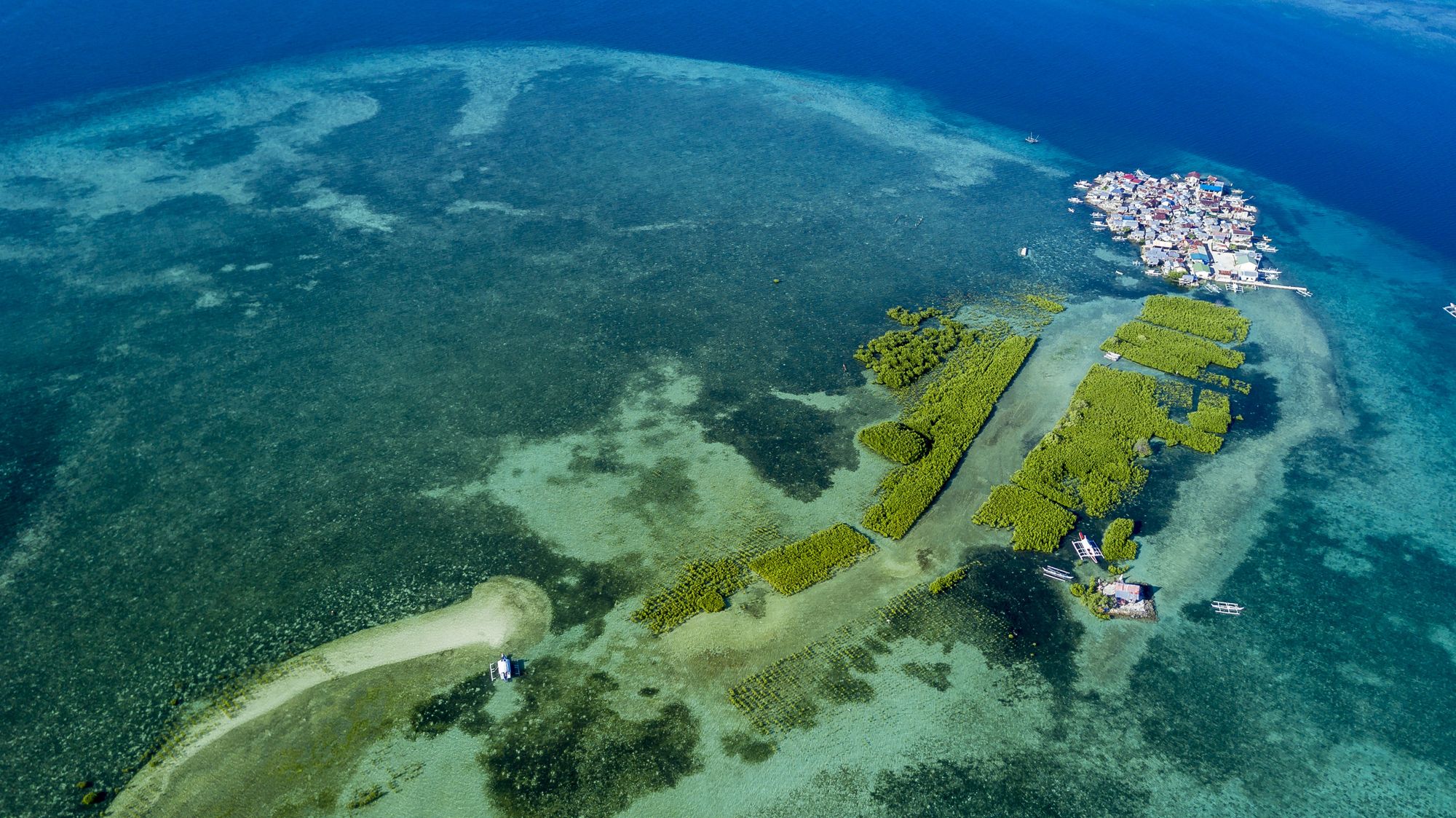
This report outlines what ocean accounts are and how they can link to, and support, marine spatial planning.
Learn More
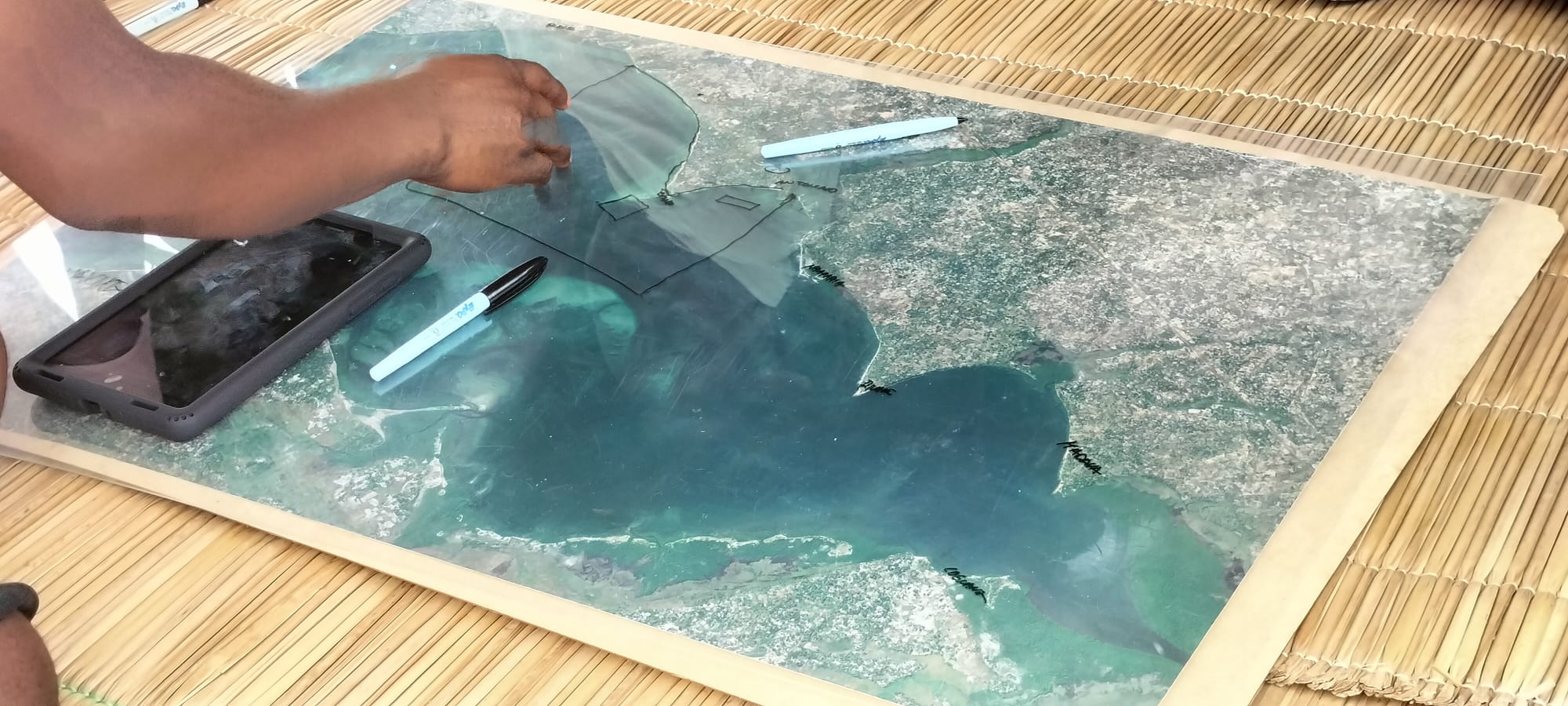
Learn More